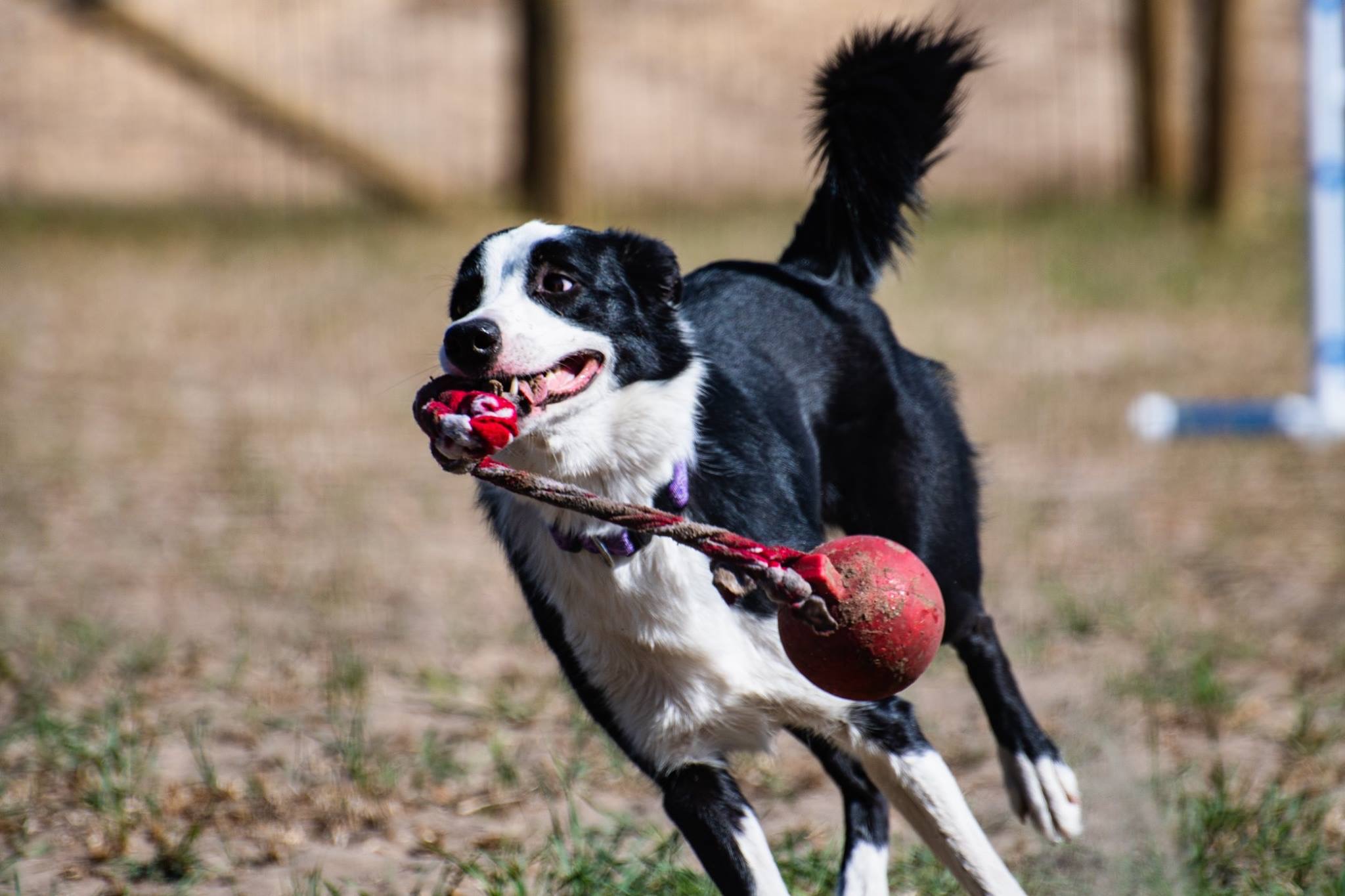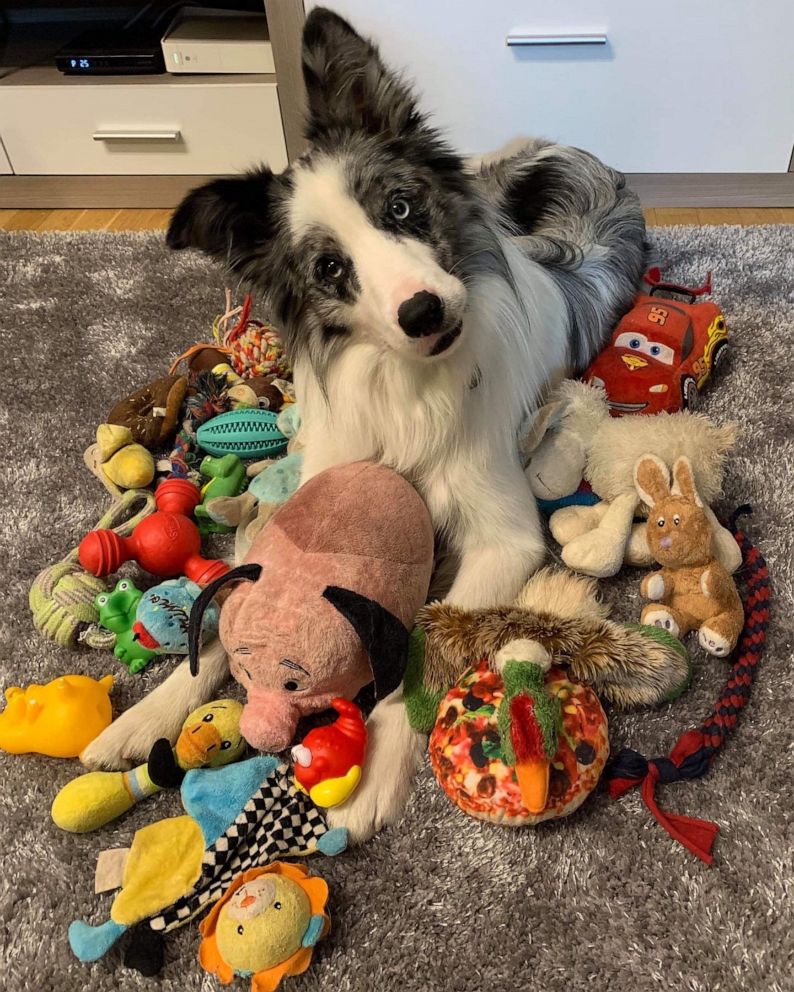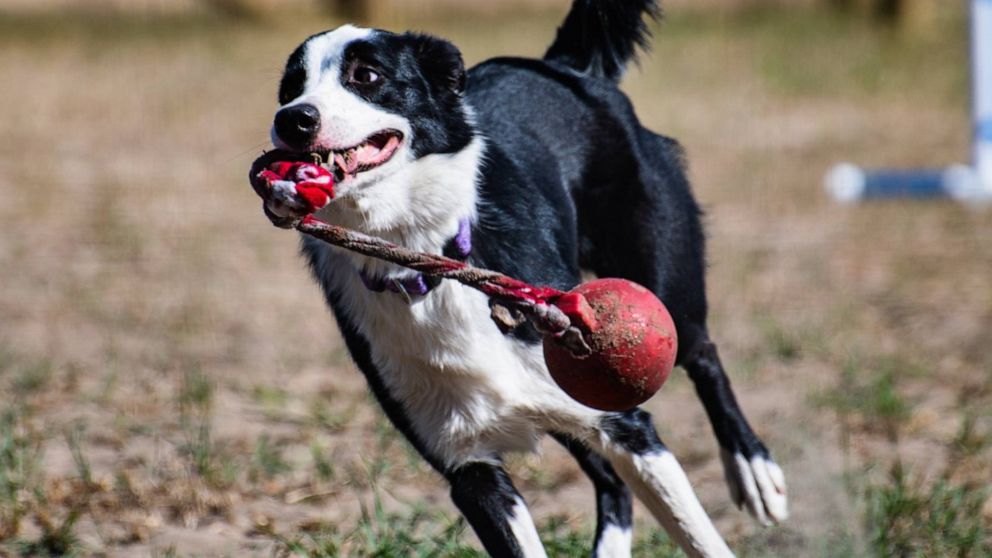Looking for the canine da Vinci: 6 dogs compete on world stage in live-streamed ‘Genius Challenge’
Albert Einstein, Nikola Tesla, Isaac Newton. All geniuses from history that have become household names, recognized for their intellectual brilliance and contributions to our shared understanding. It may seem fur-fetched that Squall, a Florida-born Border Collie, could join the ranks of those great thinkers, but at the Genius Dog Challenge, that might not be so im-paws-ible.
That’s because the Challenge, the first of its kind, will pit Squall against fellow Border Collies Max, Nalani, Gaia, Rico and Whisky, to see once and for all who will take the title of the "World’s Smartest Dog."
Every Wednesday until Dec. 16, the "Genius Dog Challenge" will be live-streamed on Facebook and YouTube as the dogs take part in a series of tasks to test their intelligence and memory. Due to coronavirus travel restrictions, however, the dogs will be competing in their homes around the world -- from Brazil and Florida to Spain, Norway, the Netherlands and Hungary.

Each week the dogs -- narrowed down to compete after an intensive search by organizers -- will learn the names of a number of new toys, and be tested how much they remember, in what scientists say is a challenge to help us understand the evolutionary origin of the human language. The challenge itself is the culmination of two and a half years of research by scientists at ELTE University in Budapest, Hungary.
“It is part of a bigger research project aimed to improve our understanding of the human language and how dogs perceive it,” Shany Dror, a researcher at ELTE University who pioneered the event, told ABC News. “We are also interested in understanding what makes these dogs so unique and why they differ from other dogs. The deep friendship between humans and dogs is based on our ability to communicate with each other. This communication is possible due to the many similarities between the two species.”
For Bobbie, Squall’s owner, training dogs became a hobby during retirement, but her current Border Collie, unlike the other dog’s she’s trained, is a “genius.”
“Border Collies are smarter anyway,” she told ABC News. “They are of the herding group and herding dogs need to know what's going on all the time because they have to keep track of the herd. But you can tell that he's got something special. There's just something different about him.”

For the dog owners, the challenge is a fun learning opportunity which will allow them to further develop the deep bonds with their pets. For Dror, it has an altogether different significance.
“We think we have a good bond with our dog but in this research, we ask our dogs if they see it the same way,” she said. “We think we understand our dogs, [but] in this research we ask if they also understand us.”
At the moment, the research is focused on the task of naming toys, but the scientists are hoping to carry out further studies into a range of tasks in the future, and in doing so may potentially unearth the first canine polymath, according to Dr Claudia Fugazza, another scientist behind the project at ELTE University.
“This is what our research is trying to find out,” she told ABC News. "Just as Mozart was a genius for music, it does not mean that he was great in painting. There are many good musicians among humans, but Mozart was somehow different and this is something along these lines.”




